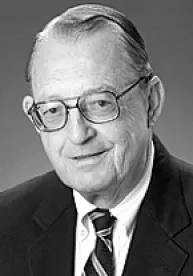In Competition Law360, September 4, 2013, we reported on the dismissal of a complaint which alleged, inter alia, exclusive-dealing claims in a market described as the management and distribution of “photographs in rich media content for hotels”. Plaintiff Pro Search (“Pro Search”) alleged that defendant VFML Leonardo, Inc. (VFML”) violated Sections 1 and 2 of the Sherman Act by entering into exclusive-dealing agreements which allegedly excluded Pro Search from participation in the defined relevant market. Pro Search alleged that VFML had approximately 80% of the relevant market. Nevertheless, the U.S. District Court for the Central District of California, sitting in Santa Ana, dismissed the First Amended Complaint (“FAC”) on the ground that the contracts were “a short duration and easily terminable”. This was so notwithstanding that the duration of the contracts in issue were two to three years in a number of situations, and five years in another. Pro Search Plus LLC v. VFM Leonardo, Inc., U.S.D.C., Central Dist. of California, Case No. SACV 12-2102-JST (ANx), July 30, 2013.
Pro Search thereafter filed a Second Amended Complaint (“SAC”). In an order granting in part and denying in part defendant’s motion to dismiss the SAC, the Court held that Pro Search had adequately alleged a scenario of de facto exclusive dealing with a resultant exclusion of the Pro Search as a viable competitor. Pro Search Plus LLC v. VFM Leonardo, Inc., U.S.D.C., Central Dist. of California, Case No. SACV 12-2102-JST (ANx), Dec. 2, 2013.
In our September report, we noted that the dismissal had been bereft of context. There was no way to determine whether the duration of the alleged exclusive dealing arrangements would substantially lessen competition in the relevant market, or whether consumers within the market could reasonably avoid anticompetitive effects by switching to alternative providers. In short, our report posed the question “how long is short?”.
The allegations of the SAC provide both context and a preliminary answer to the question posed. The SAC alleges, for example, that the Global Distribution Systems, who were the purchasers from VFML, were precluded from the benefits of getting more content choice through multi-sourcing from competing distributors. If a purchaser within the relevant marker were to terminate its agreement with VFML, “it would face prohibitively high ‘switching costs’ in trying to replace or replicate the lost VFML content and distribution platform”. This was because, as alleged in the SAC, VFML would “cut them off from access to the necessary VFML-controlled content and distribution platform, seriously disabling if not destroying that [purchasers] competitive presence.” The SAC also alleges that the purchasers within the relevant market “have confirmed they cannot deal with competing distributors”. In addition, their agreements “are continually renewed and not open to rebidding”. Finally, the SAC alleges that Pro Search has “never been asked to bid” despite having “unsuccessfully tried numerous times to reach out and make offers.” “In effect, VFML has told the hotels that unless they … work with VFML on an exclusive basis, they will lose all of their content distribution through VFML’s vast network of locked-in distribution channels.” In a nutshell, the SAC “alleges that as a result of VFML’s anticompetitive conduct, competitors have been ‘effectively foreclosed from the distribution markets’ and VFML has been able to ‘charge supracompetitive prices.’”
Pro Search alleges that VFML has monopolized and attempted to monopolize in violation of Section 2, and has also violated Section 1, based on the exclusive dealing agreements. As to the Sherman Act claims, defendant VFML moved to dismiss the exclusive dealing claim on the ground that the agreements were easily terminable, or short duration, left open alternative channels of distribution, and did not constrict its customers from using the services of other providers.
In its order dismissing the exclusivity claims of the FAC, the Court noted a number of authorities in support of the proposition that exclusive dealing contracts of short duration, that are readily terminable, do not run afoul of the antitrust laws. This is because, as the Court cited from Areeda & Hovenkamp;
even an exclusive-dealing contract covering a dominant share of a relevant market need have no adverse consequences if the contract is let out for frequent rebidding.
In dismissing the FAC, the Court acknowledged that the case law does support the general proposition that de facto exclusive dealing arrangements can run afoul of the antitrust laws. However, it noted that Pro Search did not allege anything beyond the existence of the contract to support its apparently broader de facto theory.
What a difference a day makes. The additional allegations contained in the SAC provided the necessary context to evaluate whether the arrangements at issue, notwithstanding their terminability, supported the general proposition that a de facto exclusive dealing arrangement had been plausibly and thus properly pled.
Perhaps the origin of modern exclusive dealing analysis is the Standard Station case of 1949, Standard Oil Co. of California v. United States, 337 U.S. 293 (1949). The issue to be determined, of course, is whether the conduct at issue substantially forecloses competitive opportunities in a given properly defined antitrust relevant market. One indicia of unlawful foreclosure may be the degree of “market power” controlled by the actor. This is the basicStandard Station test of “quantitative substantiality”. The Supreme Court held in Standard Station that the foreclosure of a substantial share of a market, where the market is otherwise concentrated, and where entry is restricted, established a sufficient basis for a court to infer that the arrangement may substantially lessen competition. However, from another vantage point, where an exclusive dealing arrangement is of short duration, or easily terminated by the parties thereto, the otherwise questionable degree of market foreclosure will have been vitiated, and any inference of an adverse effect on competition would lack support. Thus, while the degree of market foreclosure alleged by Pro Search would seem to easily satisfy the Standard Station test, the seemingly “at-will” terminability of the exclusive dealing arrangements would vitiate competitive concerns. In such a situation, a presumption or inference of anticompetitive effect would be misplaced.
Perhaps it is appropriate to quote from a classic case, at this point. In the venerable case of Mackowik v. Kansas City, St. J. & C.B.R. Co., 196 Mo. 550, 94 S.W. 256, 262, (1906) the court observed:
“Presumptions” may be looked on as the bats of the law, flitting in the twilight, but disappearing in the sunshine of actual facts.
Here, where we are analytically discussing presumptions, indicia, or a number of factors in support of or in derogation of a legal conclusion relating to competitive effects, the allegations of the SAC have put to flight the indicia that supported the dismissal of the allegations in the FAC. In the sunshine of actual facts, the allegations of the SAC plausibly support, in the Twombly – Iqbal sense, the legal theory of de facto exclusive dealing illegality.
The Court found ZF Meritor, LLC v. Eaton Corp., 696 F.3d 254, 270 (3d Cir. 2012) to be persuasive. There, the court noted that an express exclusivity requirement is not necessary, because the court will look past the terms of the contract to ascertain the relationship between the parties and the effect of the agreement in the real world. Thus, it will seek content and context and not adopt a formalistic approach. See also United States v. Dentsply, 399 F.3d 181, 189 (3d Cir. 2005) (“economic realities rather than a formalistic approach must govern review of antitrust activity”). It thus concludes that de factoexclusive dealing claims are cognizable under the antitrust laws. The Court thus denied the motion to dismiss the SAC claims grounded upon the Section 1 exclusive dealing claim, as well as the attempted monopolization and monopolization claims under Section 2. It did, however, dismiss the tying allegations on the ground that there were no allegations supporting the proposition that the tying and tied products were in fact separate products. Thus, at this juncture, the case goes forward.



 />i
/>i
